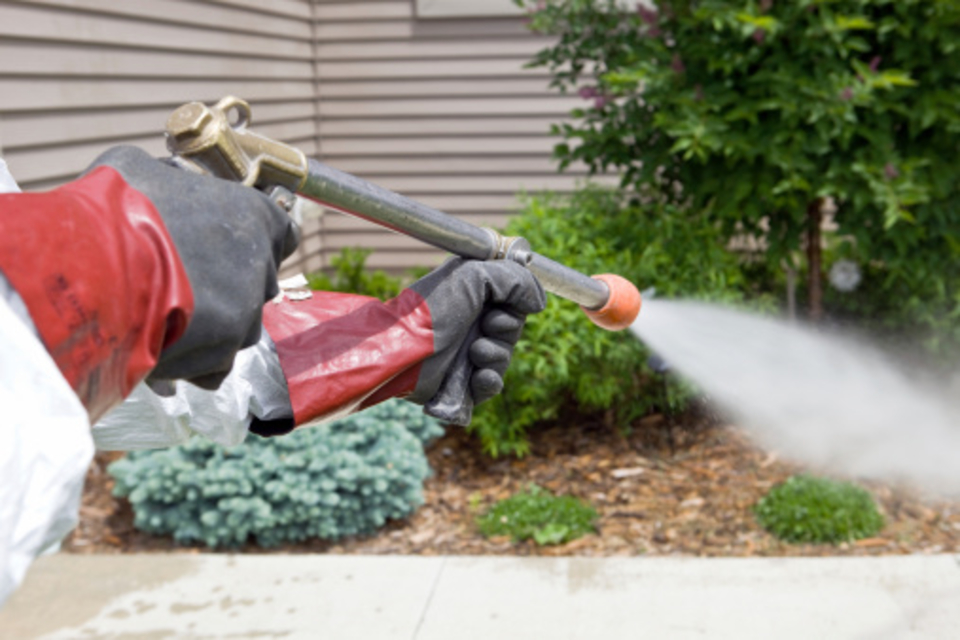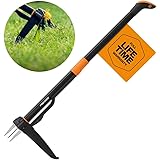A pair of strong hands and a steady back may be all you need to remove weeds permanently. Nevertheless, there are a few reasons why many people will prefer other ways of killing weeds from their gardens. With that said, there are plenty of alternatives to choose from when looking for a weed killer solution.
But, who knew that diesel could be a solution to weed problems? Well, any commoner would reason that diesel is for vehicles or mechanical use and not for plants. But it gets interestingly shocking when you get a recommendation to use diesel to kill the intrusive weeds on your garden.
A healthy lawn is every homeowner’s dream. But that bubble quickly busts with the slight appearance of weeds. Weeds will affect your garden in many negative ways. They compete with the desired plants or grass for sun, water, and other nutrients. Also, they attract pests and diseases. How much worse could this possibly get?
Stay put for more information on the use of diesel to kill weeds in this article.
How to Use Diesel to Kill Weeds
To eliminate the weed nuisance, use the following steps while using diesel to kill the weeds successfully.
What you will need;
- Gasoline metallic jug
- Plastic sprayer (for dense liquid with straight spray nozzle)
- Funnel
- Trowel
- Protective gear( mask, goggles, and gloves)
- Fill the gasoline jug with about 2 gallons of diesel from your nearest gas station. But then again, if you have a diesel driven vehicle, you can get some fuel from it. Please put on the protective gear. Use a funnel to pour the diesel into the spray bottle. Do this in the garage or a place with no plants to avoid spilling the diesel and kill your desired plants.
- Fill the spray bottle with diesel and fasten the nozzle before going to the garden.
- While in the yard, assess the areas with weeds and unwanted grass. Because we do not want to waste the diesel fuel, open the nozzle and bend down to get closer to the weeds as you spray. The closer you are, the less fuel you will use, and the more direct you will pour on the weeds and unwanted grass only.
- Set the nozzle to spray instead of jet steam; thus, it will make it easier to control the spraying. Spray directly into the roots. Make sure to pour a considerable amount until the weeds, and unwanted grass is wet and covered with diesel.
- Once done, give it time to react effectively. Return the remaining diesel in the gasoline jug and store to not spill in a cool, dry place. Always label the spraying bottle to avoid accidents of using it for something else. Keep animals and children off the sprayed area.
- Once the weeds are dead, use a trowel/ shovel and dig them up along with about an inch of soil underneath. If you mistakenly spilled any diesel on desired plants, dig out a minimum of top four inches of soil before replanting that area. Since diesel is toxic to plant life, you should not grow anything in that area for a period of less than a season.
Caution: Using diesel on your yard to kill weeds and grass is harmful to the environment at large. Therefore, spray when there is no chance of wind or rain for about 48 hours, preferably in the morning when the weather is steady.
How Long Does It Take Diesel To Kill Weeds?
Depending on the size of your lawn, one gallon of diesel is enough if sprayed well with no leakages. After finishing with the proper application of diesel on the weeds, the leaves will start to wilt in a few hours. It will kill the weeds after approximately 48 hours as long as it remains on the plant.
Just like a coin, the use of diesel on plants is both-sided. For starters it is the ability to kill weeds, which is the ultimate goal for all gardeners. Unfortunately, it will also eliminate the useful plants you would wish to retain if not applied properly.
NB: Diesel will not kill the seeds of the weeds, hence a non-permanent solution.
You can opt for safer methods if not sure about the aftermath. After all, who would wish to damage a lawn/garden of pure hard work?
Can You Mix Roundup with Diesel Fuel?
Diesel acts as a surfactant or additive when mixed with Roundup to kill weeds. However, if you purchase Glyphosate (the active ingredient of RoundUp); it will kill any grass and weeds in just 3 hours of spraying. Diesel is not essential if you buy the Glyphosate concentrate with a surfactant added already.
Conversely, a combination of roundup and diesel is more potent than a single use of either. Diesel doesn’t kill the seeds, but Roundup will kill them to inhibit further growth in the next season. Roundup can be faster in killing the weeds, but diesel is thorough.
Therefore, both diesel and Roundup will provide the ultimate solution to weeds. Indeed, two is better than one!
Does Petrol Kill Weeds?
Petrol, or commonly known as gasoline, is also another way of killing weeds. However, please don’t try using gasoline to cause problems to both the environment and gardener. While using small amounts of petrol sounds easy and quick in killing weeds, you need to understand the hazards. Pouring petrol into the soil affects the whole watershed, plants, and animals in that area. Gasoline is NOT something we should deliberately run into our ground.
Also, gasoline is highly flammable hence can quickly start a massive fire. It simply means that while using petrol to kill weeds, you need to use when temperatures are below -45F. However, gardeners can’t kill weeds at that dangerous temperature.
However, when worse comes to worst, spray or spot treat using a minimal amount of gasoline on the weed foliage. Do this on a cold day focussed on the weed foliage instead of the soil. Do not water the lawn after spraying the foliage.
Remember to keep children and animals from the sprayed weedy area.
Will Kerosene Kill Weeds?
Are you looking for a solution to kill weeds growing on your gravel driveway?
Kerosene also works well in killing weeds either singly or as a carrier agent for herbicides or pesticides. As a carrier agent or surfactant, kerosene holds the herbicide on the weeds’ leaves for a long time until the results show.
But the joy is short-lived since it doesn’t kill the seeds. Even though it can harm the soil, it will eventually decompose into base carbohydrates and turn into fertilizer. Therefore, the weeds will bounce back better and stronger weeks later.
The hitch to using kerosene as a weed killer tends to leave an oily residue wherever used.
Effects of Diesel on Grass
It’s quite unfortunate that there are times that you have to kill the grass. You should kill grass that grows in unwanted areas and if it doesn’t look right.
Diesel is an effective way to kill unwanted grass, but, as stated above, be cautious not to harm desired plants and the environment.
Assuming that you want to get rid of unattractive grass for fresh regrowth, it will just take a thin coating of diesel to kill grass growing in your yard. But be careful not to use large spills of diesel as it will persevere in the soil. Diesel will hinder the growth of fresh grass in that area for the remaining season.
With diesel, you can be sure that the unwanted grass will not come back since it causes prolonged or severe plants’ effects in general.
What Kills Weeds Permanently?
The most annoying bit about weeds is that they never seem to stop. You think you are through for good in killing them, but after a short time, an entire fleet is at it again.
Yes, there are countlessly tested and proven ways of permanently killing weeds from your yard, both organic and chemical as long as you act promptly. Other methods are still coming up with suggestions every day. However, these methods rely on how one applies them, the type and amount of weeds, and the area of growth.
Conversely, the best way to kill weeds permanently, never to be seen again, is to maintain a healthy lawn/garden. Mow regularly, feed and water your plants and soil appropriately, and treat to avoid pests and diseases more often.
After you have successfully eliminated the weeds, follow the above simple steps to inhibit regrowth completely.
Final Thoughts
When planning to kill weeds and unwanted grass, know precisely where and what you want to eliminate. Also, read and understand the labels of anything you buy to get rid of your weeds and grass. Indeed, you don’t want to go spraying something that will give the opposite results of what you are anticipating.
With diesel, just spray and watch your weeds wilt and die.





